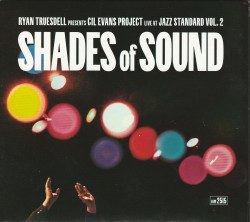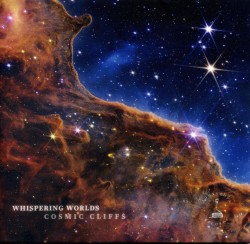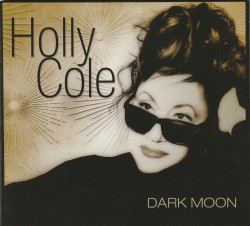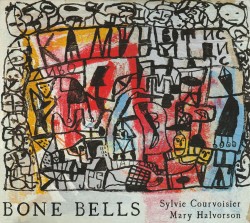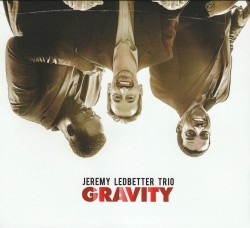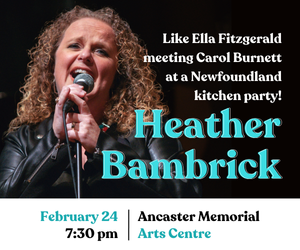As the history of music advances, deepens and becomes more inclusive, thoughtful people now realize that rather than it being a succession of Great Men who created notable sounds, distinguished music is the result of many adventurous stylists adding their contributions to the sound gestalt. Less hierarchical than most, creative music has long accepted this truism. What that means is that when contemporary players salute their forebearers by playing their music, a wealth of compositions exist from others than the justly celebrated Great Men. This is what these discs promise. Besides coming up with highly original versions of the oeuvre of Jazz’s Great Men – in this case John Coltrane and Thelonious Monk – the bands here interpret the music of other innovators, one of whom was even a woman.
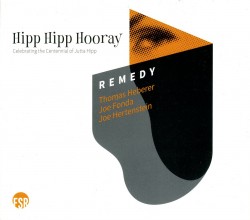 That woman was Leipzig-born German pianist Jutta Hipp (1925-2003), who in the 1950s was recognized as the first non-American female instrumentalist to contribute to Jazz’s evolution. To honour her during her centennial, the members of Remedy on Hipp Hipp Hooray (Fundacja Sluchaj! FSR 02/2025 sluchaj.bandcamp.com/album/hipp-hipp-hooray-celebrating-the-centennial-of-jutta-hipp) play her compositions as well as their own, Not only that, but the trio doesn’t even include a pianist. Instead Remedy is composed of two Germans, trumpeter Thomas Heberer and drummer Joe Hertenstein, plus American bassist Joe Fonda. Only on Der Grüne Zweig does the band name check Hipp and her 1952 group “a lady and four gentlemen” while replicating pseudo-Bop with brassy shakes, echoing drum accents and a walking bass line.
That woman was Leipzig-born German pianist Jutta Hipp (1925-2003), who in the 1950s was recognized as the first non-American female instrumentalist to contribute to Jazz’s evolution. To honour her during her centennial, the members of Remedy on Hipp Hipp Hooray (Fundacja Sluchaj! FSR 02/2025 sluchaj.bandcamp.com/album/hipp-hipp-hooray-celebrating-the-centennial-of-jutta-hipp) play her compositions as well as their own, Not only that, but the trio doesn’t even include a pianist. Instead Remedy is composed of two Germans, trumpeter Thomas Heberer and drummer Joe Hertenstein, plus American bassist Joe Fonda. Only on Der Grüne Zweig does the band name check Hipp and her 1952 group “a lady and four gentlemen” while replicating pseudo-Bop with brassy shakes, echoing drum accents and a walking bass line.
The other tunes are postmodern rather than puffery as the three adapt 21st century techniques to firm, swinging expositions. With his playing as relaxed as it is rugged, Hertenstein supplies the necessary cymbal chings, drum clanks and occasional thundering ruffs to the nine tunes, but even his heaviest hits allow the others to play on unperturbed. Exponent of the low pitched string slap with the same cultivated skill he brings to speedy spiccato rubs, two of Fonda’s compositions are as fully in the groove as ones from the 1950s, but are stretched into this century. Detroit Meets Leipzig mates thick bass string throbs with Heberer’s gritty growls and flutter; while Bass Bottom accelerates from languid to lively as the trumpeter interposes an interlude of gargles and gurgles dug out of his horn’s innards, emphasized among soaring grace notes as the drums smack and the bassist’s tough spiccato rubs speed and slow. Heberer’s portamento command is featured best on his own Das Brot der Frühen Jahre as he maintains an elongated phrase alongside Fonda’s col legno stops and then relaxes into a sequence of easygoing story telling.
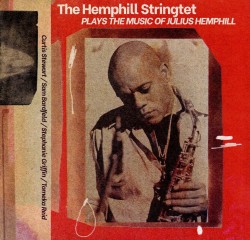 A similar transformation of another musician’s oeuvre is created on Plays the Music of Julius Hemphill (Out of Your Head OOYH 035) Members of The Hemphill Stringtet – violinists Curtis Stewart and Sam Bardfeld, violist Stephanie Griffin and cellist Tomeka Reid – take the compositions of alto saxophonist Julius Hemphill (1938-1995), created for reed heavy ensembles like the World Saxophone Quartet, and interpret them as part of the string quartet tradition. Influenced by, but not part of the jazz mainstream, Stringtet members often perform the compositions as Reid’s low-pitched pizzicato creates the pulse a double bass would provide, while the others stick to arco interpretations. Vibrant lyricism takes its place alongside vigorous locution, but melody never gives way to soppiness. That’s because as well as harmonies, the strings create rhythmic stops and touches of hoedown sprightliness. On the final Choo Choo for instance, they not only replicate expected locomotive chugging, but enliven the reading with hide-and-seek cadences. My First Winter/Touchic, an extended tone poem, may start off balladic and atmospheric, yet it emphasizes colour and motion more than romanticism. When the affiliated Touchic is latterly played, it’s defined by col legno sweeps and spiccato string swabs. Even as the theme variations ascend in speed and volume lilting touches remain. In part the disc is also a dual tribute, for its centrepiece is Mingus Gold, a Hemphill arrangement of three Charles Mingus compositions commissioned by the Kronos Quartet. Stringtet’s variant emphasizes antiphony between high and low pitches and in recasting the main themes blends raunchy with romanticism without overindulging either. Most spectacularly during Better Get Hit in Your Soul its pronounced funkiness is expressed clearly with Reid’s plucks surrounded by the others’ prestissimo cadenzas that manage to swing at the same time as they extend the famous piece’s musical architecture.
A similar transformation of another musician’s oeuvre is created on Plays the Music of Julius Hemphill (Out of Your Head OOYH 035) Members of The Hemphill Stringtet – violinists Curtis Stewart and Sam Bardfeld, violist Stephanie Griffin and cellist Tomeka Reid – take the compositions of alto saxophonist Julius Hemphill (1938-1995), created for reed heavy ensembles like the World Saxophone Quartet, and interpret them as part of the string quartet tradition. Influenced by, but not part of the jazz mainstream, Stringtet members often perform the compositions as Reid’s low-pitched pizzicato creates the pulse a double bass would provide, while the others stick to arco interpretations. Vibrant lyricism takes its place alongside vigorous locution, but melody never gives way to soppiness. That’s because as well as harmonies, the strings create rhythmic stops and touches of hoedown sprightliness. On the final Choo Choo for instance, they not only replicate expected locomotive chugging, but enliven the reading with hide-and-seek cadences. My First Winter/Touchic, an extended tone poem, may start off balladic and atmospheric, yet it emphasizes colour and motion more than romanticism. When the affiliated Touchic is latterly played, it’s defined by col legno sweeps and spiccato string swabs. Even as the theme variations ascend in speed and volume lilting touches remain. In part the disc is also a dual tribute, for its centrepiece is Mingus Gold, a Hemphill arrangement of three Charles Mingus compositions commissioned by the Kronos Quartet. Stringtet’s variant emphasizes antiphony between high and low pitches and in recasting the main themes blends raunchy with romanticism without overindulging either. Most spectacularly during Better Get Hit in Your Soul its pronounced funkiness is expressed clearly with Reid’s plucks surrounded by the others’ prestissimo cadenzas that manage to swing at the same time as they extend the famous piece’s musical architecture.
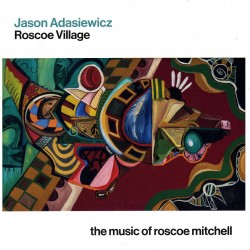 Coming from the opposite direction is Roscoe Village, the Music of Roscoe Mitchell (Corbett vs Dempsey CvsD CD 103). The disc consists of unaccompanied renditions by vibraphonist Jason Adasiewicz mainly of compositions by multi-reedist Mitchell. Some were initially performed solo by the composer himself, while others were played by Mitchell’s groups, including the Art Ensemble of Chicago. Adasiewicz, who has recorded with other advanced saxophonists like Peter Brötzmann, doesn’t miniaturize the composition with his metal and resonator instrument, but gives them a novel reading. By maximizing the sustain and focusing on multi-mallet pressure he brings out both the rhythmic and refined qualities of the tunes. This is expressed most eloquently on the extended Toro/Jo Jar, where his repeated patterns coalesce into expressive swing, then just as quickly switch to the second sequence derived from contrasting hard bell-like ringing with gentling resonating echoes. Since the solo instrument husks the arrangements to their core, the simplicity and beauty of Mitchell’s pieces previously masked by horn and rhythm inferences are revealed. The usually aggressive A Jackson in Your House becomes a showpiece of strained metal echoes, moving forward even as motor-driven shakes preserve the melody. The Cartoon March leans more towards pep than parading, as the pinpointed aluminum bar slaps and stop-time runs turn to speedy glissandi which define animation motion rather than multi-layered character sketching. Subverting its title, Carefree is actually slower paced and more meditative than would be imagined, with Adasiewicz mixing measured strokes and quicker mallet clunks to examine the charm and contradictions in Mitchell’s compositions.
Coming from the opposite direction is Roscoe Village, the Music of Roscoe Mitchell (Corbett vs Dempsey CvsD CD 103). The disc consists of unaccompanied renditions by vibraphonist Jason Adasiewicz mainly of compositions by multi-reedist Mitchell. Some were initially performed solo by the composer himself, while others were played by Mitchell’s groups, including the Art Ensemble of Chicago. Adasiewicz, who has recorded with other advanced saxophonists like Peter Brötzmann, doesn’t miniaturize the composition with his metal and resonator instrument, but gives them a novel reading. By maximizing the sustain and focusing on multi-mallet pressure he brings out both the rhythmic and refined qualities of the tunes. This is expressed most eloquently on the extended Toro/Jo Jar, where his repeated patterns coalesce into expressive swing, then just as quickly switch to the second sequence derived from contrasting hard bell-like ringing with gentling resonating echoes. Since the solo instrument husks the arrangements to their core, the simplicity and beauty of Mitchell’s pieces previously masked by horn and rhythm inferences are revealed. The usually aggressive A Jackson in Your House becomes a showpiece of strained metal echoes, moving forward even as motor-driven shakes preserve the melody. The Cartoon March leans more towards pep than parading, as the pinpointed aluminum bar slaps and stop-time runs turn to speedy glissandi which define animation motion rather than multi-layered character sketching. Subverting its title, Carefree is actually slower paced and more meditative than would be imagined, with Adasiewicz mixing measured strokes and quicker mallet clunks to examine the charm and contradictions in Mitchell’s compositions.
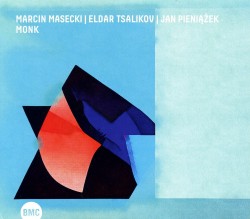 One musician who specialized in contradiction and subverting expectations was Thelonious Monk (1917-1982). Yet on Monk (BMC CD 344) Poles, pianist Marcin Masecki, reedist Eldar Tsakukov and drummer Jan Pieniążek, go one step further using an uncommon instrumental mix and unusual arrangements for a different take on 19 Monk tunes. Whether solo on three tracks, or with the trio, the pianist extends the composer’s initial stride and angled inferences to pseudo player piano and ragtime emphasis, inflating hesitant tonal shakes and repeated key clips into wider arpeggios with keyboard slides and slaps. Still his speedy fingering and stop time throbs on a track like Bemsha Swing feature a darker ostinato that preserves the head while also emphasizing the cadenced part of the title. With Pieniążek’s cymbal splashes, woodblock hits and backbeat thumps mostly deep background, the disc’s seesawing essence is between Masecki and Tsakukov’s alto saxophone and clarinet, another difference since Monk’s quartet partners were tenor saxophonists. The reedist’s fluctuating lines add a yearning eastern European melancholy not found in pieces like Ugly Beauty, while his cheeping squeals fit perfectly the pianist’s often parodic pre-modern comping and subvert Monk’s usual initial futuristic style. At the same time on tunes like Misterioso and Brilliant Corners, Tsakukov uses tongue stops and reed bites to create a pyramid of upward surging smears attaining prestissimo pitches in tandem with Masecki at near piano roll speeds for stop-time intersections.
One musician who specialized in contradiction and subverting expectations was Thelonious Monk (1917-1982). Yet on Monk (BMC CD 344) Poles, pianist Marcin Masecki, reedist Eldar Tsakukov and drummer Jan Pieniążek, go one step further using an uncommon instrumental mix and unusual arrangements for a different take on 19 Monk tunes. Whether solo on three tracks, or with the trio, the pianist extends the composer’s initial stride and angled inferences to pseudo player piano and ragtime emphasis, inflating hesitant tonal shakes and repeated key clips into wider arpeggios with keyboard slides and slaps. Still his speedy fingering and stop time throbs on a track like Bemsha Swing feature a darker ostinato that preserves the head while also emphasizing the cadenced part of the title. With Pieniążek’s cymbal splashes, woodblock hits and backbeat thumps mostly deep background, the disc’s seesawing essence is between Masecki and Tsakukov’s alto saxophone and clarinet, another difference since Monk’s quartet partners were tenor saxophonists. The reedist’s fluctuating lines add a yearning eastern European melancholy not found in pieces like Ugly Beauty, while his cheeping squeals fit perfectly the pianist’s often parodic pre-modern comping and subvert Monk’s usual initial futuristic style. At the same time on tunes like Misterioso and Brilliant Corners, Tsakukov uses tongue stops and reed bites to create a pyramid of upward surging smears attaining prestissimo pitches in tandem with Masecki at near piano roll speeds for stop-time intersections.
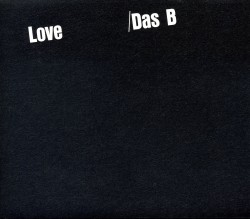 However the strangest acknowledgement of an influential musician’s work is Berlin-based DAS B’s recalibrating of John Coltrane’s seminal A Love Supreme entitled Love (Thanatosis Produktion THT 40/Corbett vs Dempsey CvsD CD 117 thanatosis.bandcamp.com). Despite the exact same running time, division into the same four movements and replication of the CD’s label colours of that 1965 album, sonic transfiguration renders it a completely different product. While the rhythm section consisting of German pianist Magda Mayas and Australians, drummer Tony Buck and bassist Mike Majkowski remains the same as the original, Lebanese trumpeter Mazen Kerbaj’s choked, half valve inner horn boring timbres are substituted for Coltrane’s majestically overt saxophone soloing. The transformative tracks, each labelled Love and a numeral, capture an intriguing contrast between a tough conveyor belt of the others’ textures and the trumpet modelling. Double bass strings buzz and stop; drumming moves from sonorous rumbles and harsh clanks to cymbal and press roll explosions; while Mayas’ cross chording, chiming expositions and vibrations of metal objects on the piano’s inner strings create an ever-shifting continuum that intersect with Kerbaj’s tones. Portamento expression from the trumpet is usually abandoned for guttural scoops, aviary squeals, mouthpiece whistles and blowsy rips that not only redefine the Coltrane suite but also the standard trumpeting rules. Somehow though disparate timbres converge and result in a unique session which in itself is a backhanded salute to the constant innovation which Coltrane and his bands personified.
However the strangest acknowledgement of an influential musician’s work is Berlin-based DAS B’s recalibrating of John Coltrane’s seminal A Love Supreme entitled Love (Thanatosis Produktion THT 40/Corbett vs Dempsey CvsD CD 117 thanatosis.bandcamp.com). Despite the exact same running time, division into the same four movements and replication of the CD’s label colours of that 1965 album, sonic transfiguration renders it a completely different product. While the rhythm section consisting of German pianist Magda Mayas and Australians, drummer Tony Buck and bassist Mike Majkowski remains the same as the original, Lebanese trumpeter Mazen Kerbaj’s choked, half valve inner horn boring timbres are substituted for Coltrane’s majestically overt saxophone soloing. The transformative tracks, each labelled Love and a numeral, capture an intriguing contrast between a tough conveyor belt of the others’ textures and the trumpet modelling. Double bass strings buzz and stop; drumming moves from sonorous rumbles and harsh clanks to cymbal and press roll explosions; while Mayas’ cross chording, chiming expositions and vibrations of metal objects on the piano’s inner strings create an ever-shifting continuum that intersect with Kerbaj’s tones. Portamento expression from the trumpet is usually abandoned for guttural scoops, aviary squeals, mouthpiece whistles and blowsy rips that not only redefine the Coltrane suite but also the standard trumpeting rules. Somehow though disparate timbres converge and result in a unique session which in itself is a backhanded salute to the constant innovation which Coltrane and his bands personified.
Moving past Great Men celebrations to advocate for a fuller version of jazz and improvised music history, albeit in a revamped form, is what makes these discs consequential.
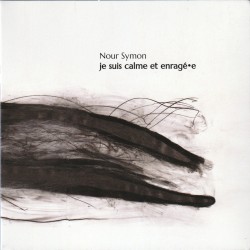 Nour Symon; Roxane Desjardins – Je suis calme et enragé-e
Nour Symon; Roxane Desjardins – Je suis calme et enragé-e

